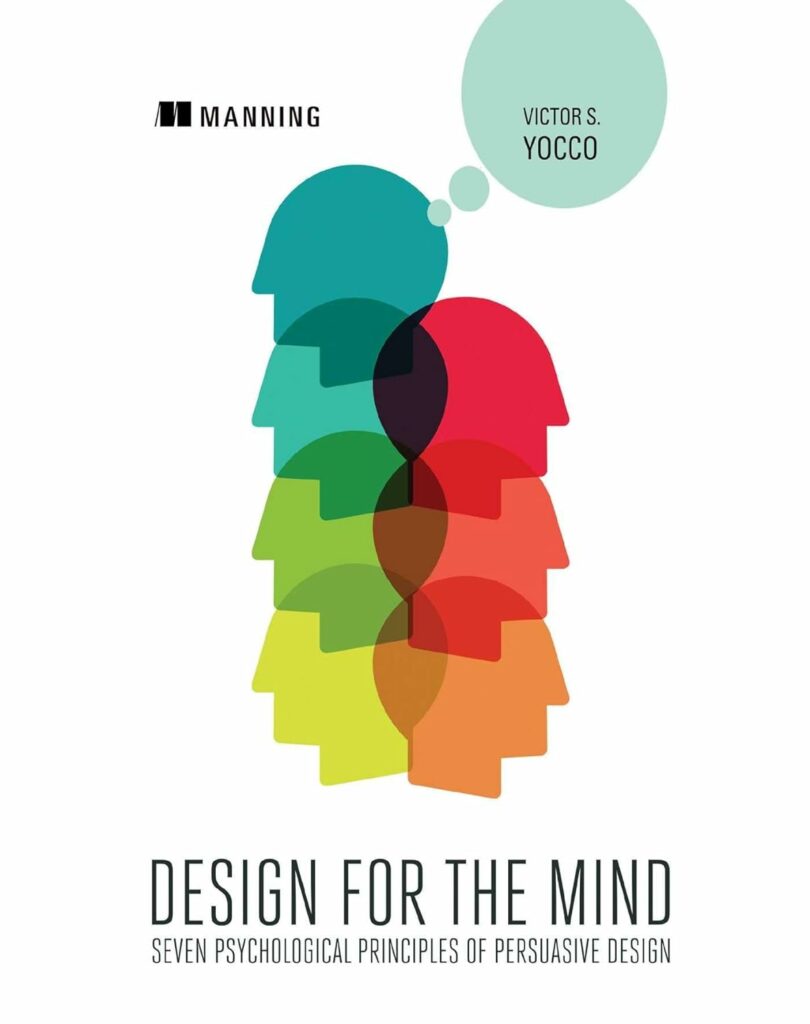In an UI Breakfast podcast from 2016, host Jane Portman welcomed Victor Yocco, an expert in integrating psychology with UI/UX design. Yocco, who also is the author of „Design for the Mind: Seven Psychological Principles of Persuasive Design“ discussed his journey from studying psychology and human behaviour to applying these insights in UX design. His work initially focused on conveying complex messages in physical spaces like zoos and science centers, later transitioning to digital design. The podcast offers a deep dive into the intersection of psychology and design, providing valuable insights for UI/UX professionals looking to enhance their work with persuasive design principles.
Key Principles of Persuasive Design
Design for the Mind introduces seven psychological principles of persuasive design:
- Planned Behaviour
Designing for intentional actions, focusing on behaviour beliefs, social norms, and perceived control. - Risky Decisions and Heuristics
Addressing decisions made with incomplete information through mental shortcuts like the scarcity heuristic. - Fogg’s Behavioural Model
Balancing motivation and ability before presenting a call to action. - Influence and Reciprocity
Utilising influence tactics like reciprocity, where giving something (like free content) creates a sense of obligation. - Social Identity Theory
Fostering in-group identification and making design decisions that resonate with specific social groups. - Framing Communication
Tailoring communication to resonate with different values and perspectives. - Elaboration Likelihood Model
Understanding that information is processed either through a detailed (central route) or a superficial (secondary route) path, and designing accordingly.
Application of Psychological Principles in Design
Yocco emphasises the practical application of these principles in design, such as:
⦁ Identifying and aligning with user needs based on psychological theories.
⦁ Using design and communication to reflect users‘ values and identities.
⦁ Implementing persuasive tactics in user interfaces for more effective user engagement.
Professional Insights and Tips
Yocco also shared his professional approach, favouring contextual inquiry and in-person interviews for user research. He highlighted the importance of representative sampling, allowing silence during interviews for deeper insights, and focusing interview questions to gather meaningful data.
Links to Victor Yocco’s Work
http://www.victoryocco.com
https://www.manning.com/books/design-for-the-mind
